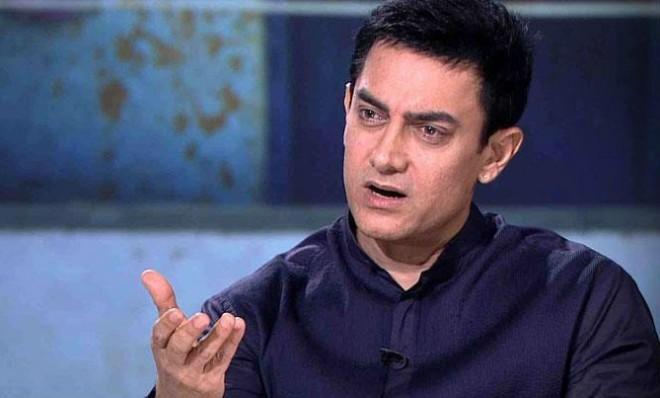
After a gripping episode on rape cases of the country, Aamir Khan delved into police atrocities in India, revealing some shocking scenarios along with suggestive remedies.
The episode began on a note of public aversion towards police supported by clippings which cried out the force's inhumane treatments towards the civilians. Incidents such as protestors being ruthlessly beaten up, women and children being harassed at the hands of uniformed men evoked strong response.
But Khan seemed clearly a man on mission as he made his point evident that his aim was not to involve in mudslinging, but to get to the root of the problem and analyze the reasons of police apathy.
IPS officer Anubhav Kumar, while speaking with Khan in the show, revealed that majority of the police personnel were subjected to hostile conditions with no proper working place, no basic amenities, and gruelling 24-hour work shifts leaving them in a difficult state. He shockingly compared Indian police's role to that of "hunt dogs" for politicians. He said that police functioned in accordance with the people in power, which invariably went against the system of justice and the general good of the public.
Adding to it, retired IPS officer Prakash Singh stated that he had moved the court to give the police autonomy so that they can function sans the state governments' interference. Supreme Court, in its judgement, has favoured the idea but as shocking as it might seem, ex-SC Judge KT Thomas revealed that none of the states have imposed the highest court's guidelines.
Then, the grim fate of police constables who comprise the majority of the force came to light. Distraught living conditions laden with misused treatment at workplace and no scope of promotion presented a woeful insight about the constables, who constitute 92 per cent of the police force.
The inept investigation process was also highlighted as Aamir pointed out that the Indian police lack a separate investigation cell, as seen in police forces of various countries. A guest in the show pointed that despite the police being provided some investigative training most cases proceed only with police using physical power, which to a large extent leads to the controversial custodial deaths.
Khan highlighted that the police recruitment system in India is fundamentally flawed as it promotes inequality. Following an archaic rule, India has four different ranks which creates a hierarchy and enables the IPS personnel (highest level) to look down upon the constables (lowest level), who are denied their due pay.
Public's fear from the police is another nail in the force's coffin. A suggestion by a veteran stated that the need of the hour is a comfortable relation between public and police which could only be achieved with free interaction from both sides.
Another guest vouched that people friendly police, increased women recruits, improvement in the personnel's working condition along with a non-intrusive state government could bring the necessary changes in the police system of the country.



!['You will be okay..': Hina Khan gets teary-eyed as Salman Khan gives her strength to fight cancer [Watch] 'You will be okay..': Hina Khan gets teary-eyed as Salman Khan gives her strength to fight cancer [Watch]](https://data1.ibtimes.co.in/en/full/806680/you-will-be-okay-hina-khan-gets-teary-eyed-salman-khan-gives-her-strength-fight-cancer.jpg?w=220&h=135&l=50&t=40)




!['You will be okay..': Hina Khan gets teary-eyed as Salman Khan gives her strength to fight cancer [Watch]](https://data1.ibtimes.co.in/en/full/806680/you-will-be-okay-hina-khan-gets-teary-eyed-salman-khan-gives-her-strength-fight-cancer.jpg?w=220&h=135)

!['Cringe, awful, horrible': Shah Rukh's daughter Suhana Khan trolled for new phone ad [Watch]](https://data1.ibtimes.co.in/en/full/806696/cringe-awful-horrible-shah-rukhs-daughter-suhana-khan-trolled-new-phone-ad-watch.jpg?w=220&h=135)